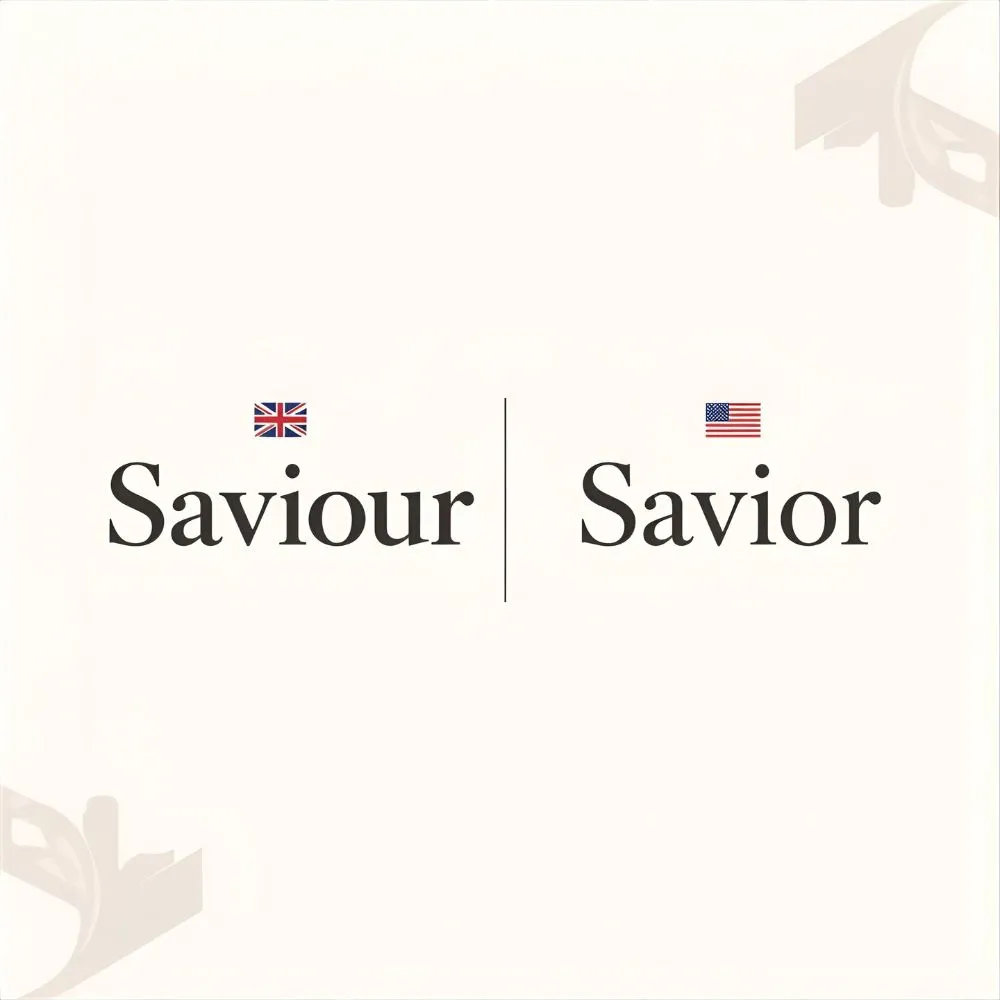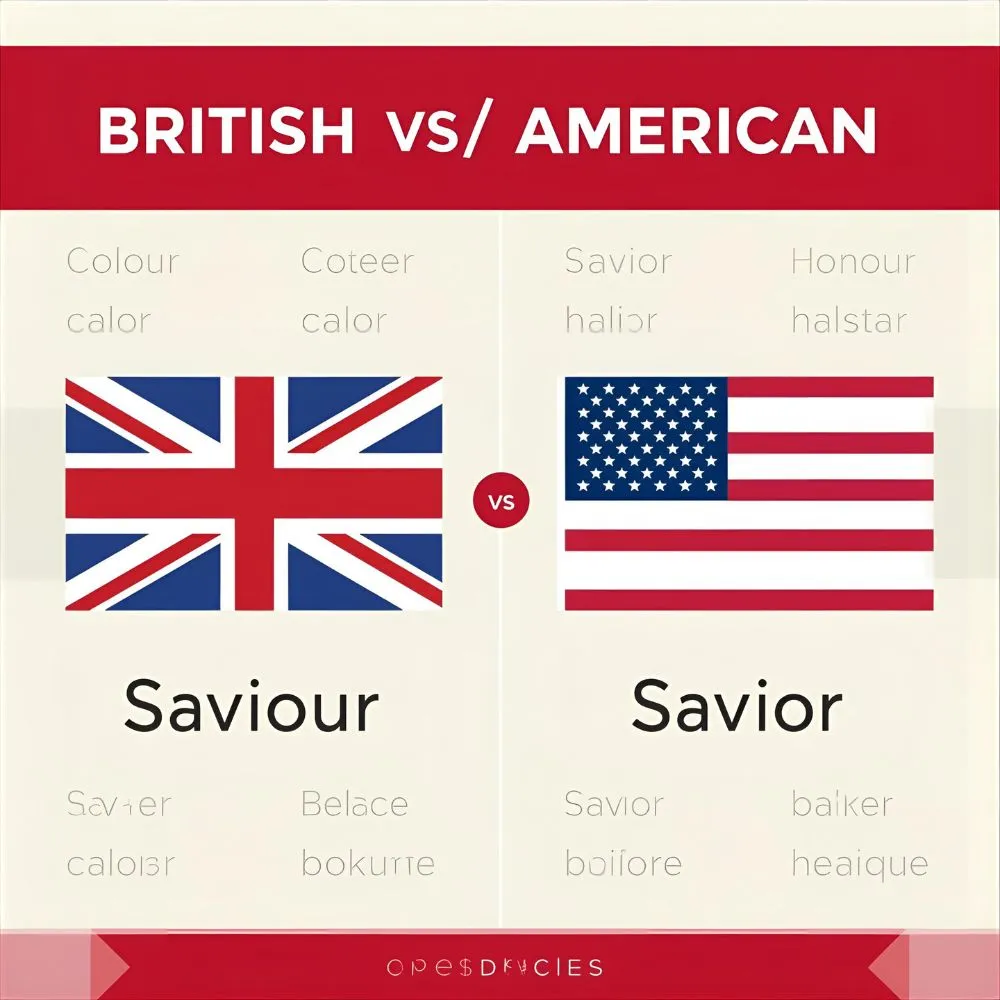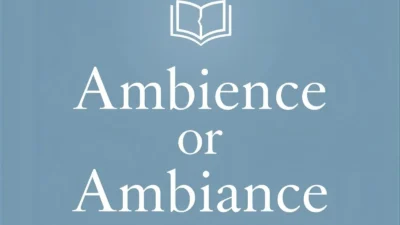Have you ever been writing something and suddenly stopped to wonder — “Is it Saviour or Savior?”
I’ve been there too. At first, both spellings looked right to me, but then I started to doubt myself. “What if I’m using the wrong one? Will it look unprofessional?”
I know I’m not the only one who feels this way — many people search for “Saviour or Savior” while writing emails, essays, or blog posts. Both words mean the same thing — “one who saves” — but the difference lies in their spelling and region. In this article,
I’ll clearly explain which spelling belongs to British English, which to American English, and how you can confidently choose the right one depending on your audience.
Saviour or Savior – Quick Answer

Both saviour and savior mean “a person who saves or rescues others from danger, hardship, or sin.”
The only difference lies in spelling conventions:
- Saviour is the British English spelling.
- Savior is the American English spelling.
✅ Example:
- British: Jesus Christ is the Saviour of persons.
- American: Jesus Christ is the Savior of person.
So, the meaning remains the same — only the spelling changes based on region.
The Origin of “Saviour” and “Savior”

The word originates from the Latin term “salvator”, meaning one who saves. It entered Middle English through Old French as sauveour before becoming saviour in British English.
When American English evolved in the 18th and 19th centuries, language reformers like Noah Webster aimed to simplify English spellings by removing unnecessary letters. Thus, saviour lost the “u” and became savior in American English.
This difference is consistent with other spelling variations like:
- Colour → Color
- Honour → Honor
- Favourite → Favorite
Both forms have historical legitimacy — the choice depends entirely on where your audience is located.
British English vs American English Spelling

Below is a comparison table showing how saviour and savior align with regional preferences:
| Region | Preferred Spelling | Example Sentence |
| United Kingdom | Saviour | He was hailed as the saviour of the nation. |
| United States | Savior | The firefighter became a national savior after the rescue. |
| Canada | Saviour (mostly) | Canadians often use the British spelling “saviour.” |
| Australia | Saviour | Australians write “saviour” in formal and religious texts. |
| Global/Internet Use | Savior (more common online) | “Savior” is widely used online due to American influence. |
Which Spelling Should You Use?
It depends on your target audience and writing context:
- 🌍 If your readers are American → use Savior.
- 🇬🇧 If your readers are British, Canadian, or Australian → use Saviour.
- ✝️ If you’re writing religious or biblical content, check your translation. For instance, the King James Bible uses “Saviour,” while many U.S. versions use “Savior.”
When writing for a global audience, “Savior” is slightly more recognized online, but “Saviour” retains traditional and cultural significance in many regions.
Common Mistakes with “Saviour” or “Savior”

Here are a few common errors people make:
- ❌ Mixing both forms in the same document.
✅ Stick to one spelling style throughout your writing. - ❌ Using the wrong version for your region.
✅ Check your style guide or target audience before finalizing. - ❌ Capitalizing unnecessarily.
✅ Only capitalize “Saviour” or “Savior” when referring to a divine figure, like Jesus Christ. - ❌ Assuming one is wrong.
✅ Both are correct — just regionally different. - ❌ Confusing the word with “save” or “savior complex.”
✅ “Saviour/Savior” is a noun meaning rescuer; “save” is a verb.
Saviour or Savior in Everyday Examples

Here’s how both spellings appear in different types of writing:
- Emails:
- “Thank you for being our saviour during the crisis.” (UK)
- “You’re the savior of this project!” (US)
- “Thank you for being our saviour during the crisis.” (UK)
- News:
- “Local doctor hailed as a saviour after heroic act.”
- “The savior of small businesses during lockdown.”
- “Local doctor hailed as a saviour after heroic act.”
- Social Media:
- “Coffee is my morning savior ☕😂”
- “She’s truly the saviour of our team!”
- “Coffee is my morning savior ☕😂”
- Formal Writing:
- “The Saviour in religious contexts often refers to Christ.”
- “The Savior has become a symbol of hope in literature.”
- “The Saviour in religious contexts often refers to Christ.”
Saviour or Savior – Google Trends & Usage Data

Google Trends shows clear regional preferences:
- “Savior” dominates searches in the United States, Philippines, and online publications.
- “Saviour” remains strong in the UK, Canada, India, and Australia.
The American spelling (savior) has become more common globally due to U.S.-based media, movies, and online content. However, saviour continues to appear in literature, religious texts, and Commonwealth countries.
This shows how English adapts based on geography, culture, and digital influence.
Dwarfs or Dwarves: The Surprising Story Behind These Two Words
Comparison Table: Saviour vs Savior
| Feature | Saviour | Savior |
| Language Form | British English | American English |
| Common Regions | UK, Canada, Australia | USA, Philippines |
| Origin | Old French sauveour | Simplified U.S. spelling reform |
| Usage Context | Religious, literary, formal | Modern, everyday, digital |
| Example | Jesus Christ, the Saviour of persons. | Jesus Christ, the Savior of persons. |
FAQs about “Saviour” or “Savior”
1. Is “Saviour” incorrect in American English?
Not incorrect, but rarely used. Americans prefer “Savior.”
2. Why does British English have a “u” in “saviour”?
It follows traditional spelling from Old French and Latin roots.
3. Which version is in the Bible?
Older versions like the King James Bible use Saviour, while many U.S. versions use Savior.
4. Can I use both spellings in one text?
Avoid mixing. Choose one based on your target audience or style guide.
5. Which spelling is more popular online?
Savior is more common on websites and social media due to American influence.
6. How can I remember the difference?
Think “u for UK” → Saviour (British), and no u for US → Savior (American).
7. Does the pronunciation differ?
No — both are pronounced the same: /ˈseɪvjər/.
Conclusion
The debate between saviour and savior is purely regional — both mean the same thing. While British English favors saviour with a “u,” American English simplifies it to savior. Understanding this difference helps you maintain consistency in your writing, especially when addressing specific audiences.
If you’re writing for British, Canadian, or religious readers, saviour feels more traditional and formal. For American or online readers, savior is simpler and widely accepted.
In the end, your “saviour/savior” is clarity — choose one style and stay consistent. Correct spelling not only shows language awareness but also reflects professionalism and cultural sensitivity in every piece of writing.
Discover more articles :
Finaly or Finally✍️– Avoid This Common Mistake (2026 Trending Edition)
Till or Til – Everything You Need to Know in 2026 🧐
Quiet or Quite – The Complete Guide to Using Them Correctly (Trending 2026)✨

Nathaniel Gray is a talented writer at lingorae.com, known for his clever wit and engaging style.
A true master of puns, he crafts playful wordplay that entertains and delights readers.




